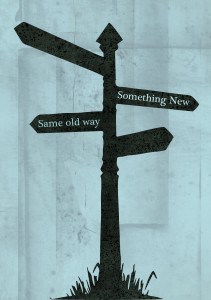Let’s be honest. Engaging in career conversations is not that hard. It’s inherently simple to talk with other people about what they’re good at, what they’re interested in, and where they see themselves going. It’s good for business to understand and leverage the capacity of all employees. It builds trust, loyalty, and engagement… which in turn deliver a range of bottom-line results.
 Let’s be even more honest. If what’s most precious to a leader was hanging in the balance, he/she could likely engage in career conversations. Granted, some skill is involved; but just average interpersonal skills are enough for a leader to have a decent talk with an employee… if they are motivated to do so.
Let’s be even more honest. If what’s most precious to a leader was hanging in the balance, he/she could likely engage in career conversations. Granted, some skill is involved; but just average interpersonal skills are enough for a leader to have a decent talk with an employee… if they are motivated to do so.
Let’s be painfully honest. Helping leaders actually conduct career conversations may not be a training issue. Additional tips and techniques aren’t necessarily the answer. What’s required, instead of building individual skill, is building organizational habit. Genuine, sustainable career development is present in organizations that cultivate a culture rich with conversation about careers. And it all comes down to new habits.
Organizational habits are built when two equally important dimensions are present:
- Sustained individual behavior change; and
- Relevant and reasonable accountability systems.
Sustained Individual Behavior Change
Learning new skills is the easy part. What’s more challenging is to put those behaviors, strategies, or techniques into practice on a regular enough basis so that they become automatic. As long as leaders have to think too hard about a task, it feels like an ‘extra’ that’s difficult to fit into an already full dance card. But, do it enough so that…
- Career conversation cues in the workplace are on the radar screen of the sub-conscious
- Insightful questions just slide off the tongue effortlessly
- Seeing how to connect someone’s talents and interests to pressing business needs becomes an unconscious competency
…and you have behavior change that will last.
Relevant and Reasonable Accountability Systems
Sustained behavior change is considerably more possible when leaders are motivated to pay attention long enough for key behaviors to become so comfortable. That’s the only way they become part of the leader’s natural repertoire. But attention in the short term is required. And nothing inspires attention more than accountability.
When organizations implement systems that draw attention to important skills or behaviors, leaders listen. Whether it involves setting expectations, instituting measures and metrics, targeted coaching, or elevating visibility in other ways, these systems support the focus and provide the reinforcement required for sustained behavior change.
The key is identifying systems that are relevant. They need to draw attention directly to the behavior, skill, or outcomes required. They also must be reasonable – not requiring new departments, another headcount, or superfluous activity streams. Most organizations already have more than enough systems in place; it’s just a matter of leveraging or piggybacking on what already exists.
Don’t Kick – Rather Kindle – the Habit
So, if you’re serious about building a culture that’s rich with conversation about careers, kindle the organizational habit. Rather than more training, help leaders:
- Activate the skills they already have
- Sustain key behaviors over the long-haul
- Implement (or leveraging) relevant and reasonable systems that draw attention and accountability to the behavior
Is it worth the effort? Absolutely! Since good habits are just as hard to break as bad ones, you’ll get to enjoy the fruits of your labor for some time to come.
This article was originally posted at AllThingsWorkplace.com in honor of the Help Them Grow or Watch Them Go book launch. Check out All Things Workplace and thought leader Steve Roesler.


Now we’re getting to the real”rub”, a culture must initially support then eventually demand regular career conversations between employees and managers. And it starts with one manager at a time. No one needs permission to do the right thing.